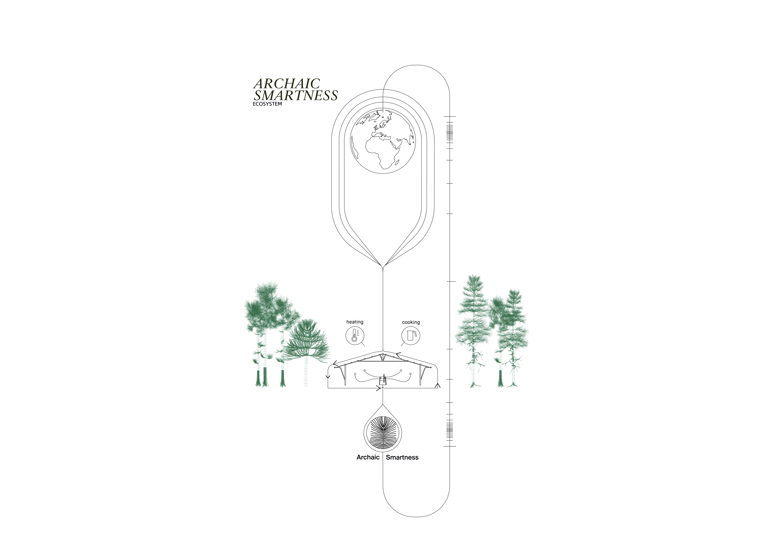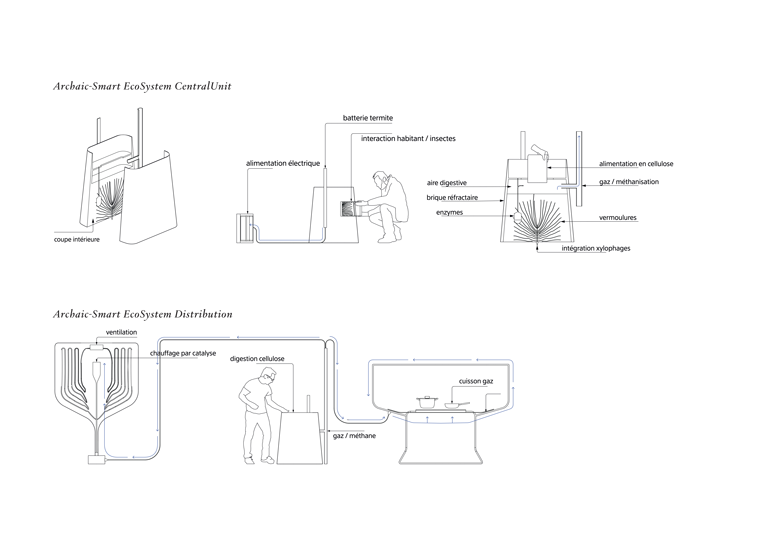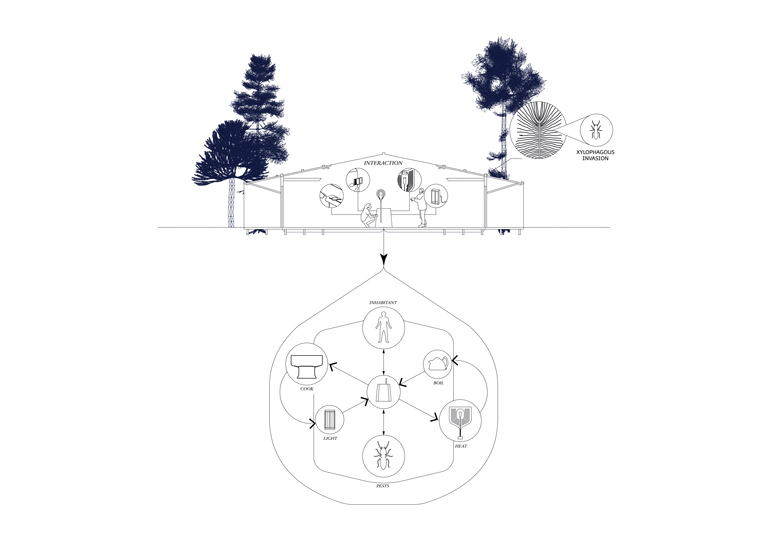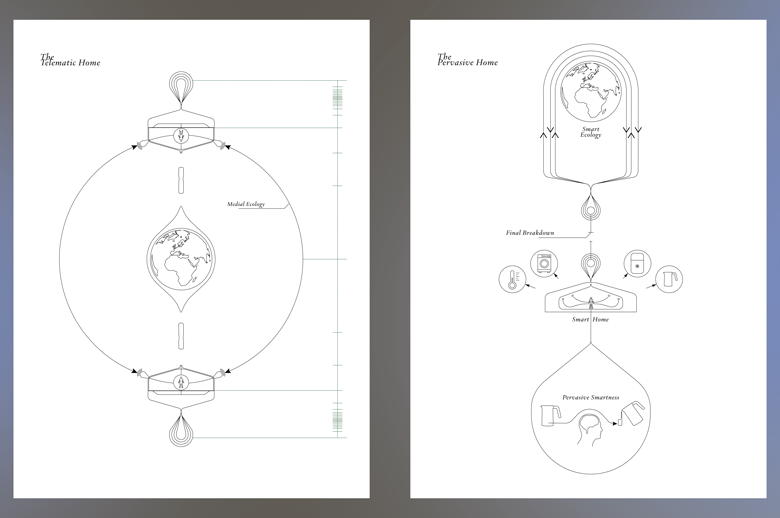![[Translate to Anglais:] Archaic Smartness par Valentin Graillat](/fileadmin/content_uploads/crd.ens-paris-saclay.ensci.com/2_Projets/Graillat_Projet_Vignette.png)
Archaic Smartness by Valentin GRAILLAT
This doctoral research addresses the domestic ideal of the “Smart Home” investigating alternative ecologies to the contemporary model.
A __ The ‘Becoming Smart’ of the Home: a Genealogy of a Techno-Domestic Ideal
‘The shutters open softly and a warm light envelops you. In the hollow of your ear, the crackle of the coffee pot invites you into the kitchen where your breakfast awaits. While a voice reads you the latest news, the thermostat adjusts the ideal temperature for your bath. On the way out, the lights and heating accompany you, and everything seems to come together without you even thinking about it.’
In the space of a few years, the ‘Smart Home’ has become the blanket term for the technological future of our domestic homes. Presented commercially as the pinnacle of home comfort, the story of the Smart Home, its applications and uses, offers the tantalising promise of a daily life fully programmed to satisfy the desires of the dweller. While the retro-futuristic imagery of the Cold War may no longer be relevant, the Smart-Home nonetheless bears its main scars. Mobilising a lifestyle based on consumption, disengagement and entertainment, the technological development of our contemporary ‘Smart Lives’ seems to have crystallised into the nostalgic values of yesterday’s futures. At a time when the Smart-Home is on the verge of becoming a tangible reality, we can therefore question the sustainability of a way of life that embraces a techno-domestic ideal founded in the 20th century:
In the future, what relationship(s) do we wish to foster, through our domestic and technological equipment, with the diversity of living environments that we inevitably continue to depend on? And how can design, as a reformulation of our techno-domestic imaginaries, help us to reflect on the ‘Smart’ ecosystem of our homes? The first part of my research traces the origins of this techno-domestic ideal. The second clears the way for exploring potential alternatives to this self-fulfilling model.
B __ 1 Archaic Smartness Research

The Archaic Smartness research programme speculates on new interpretations of a domestic ‘Intelligence’, based on reciprocal relationships between the inhabitant and the living, the organic and tangible ecologies present in their environment. For this first phase, Archaic Smartness takes the form of a domestic eco-system adapted to the localised context of houses in the Landes region. The structural framework of these dwellings is particularly affected by ‘invasive’ species of insects fleeing their natural environments (drought, deforestation). The project proposes a model for the domestication and intelligent collaboration with these living organisms to generate enough energy to meet the daily needs of dwellers.

The proposed domestic ecosystem is based on harnessing the energy produced (methane gas, electricity) by the enzymes secreted in the intestinal microflora of wood-eating insects. The project seeks to propose, through a series of micro-scenarios of use, a relationship of cohabitation. In it, the home dweller provides the means necessary for the survival of the colony (cellulose-rich waste like paper or cardboard) and in return sees their own daily energy needs met. These insects, displaced from their biotope, thus shift status from ‘pests’ to creators. Overall, Archaic Smartness explores alternatives to our techno-domestic imaginaries, investigating new relational structures between the inhabitant and the diversity of ecologies that interact with our built environments.

Valentin Graillat
Designer
Graduate of the Ecole Normale Supérieure, agrégé - design
Doctoral student at the Design Research Centre (École Normale Supérieure Paris-Saclay / École Nationale Supérieure de Création Industrielle - Les Atelier)
Thesis supervisor
AUGER James - CRD/Centre de recherche en design - Doctoral School n°629 Social and Human Sciences - Université Paris-Saclay - 50% supervision.
Co-encadrante
QUINZ Emanuele (EnsadLab) 50% supervision
Modalité et financement
A 3-year research-project, funded by the École Normale Supérieure Paris-Saclay via a doctoral contract with the École Normale Supérieure (CDSN).
Registration
September 2021
Viva Voce
autumn 2024




